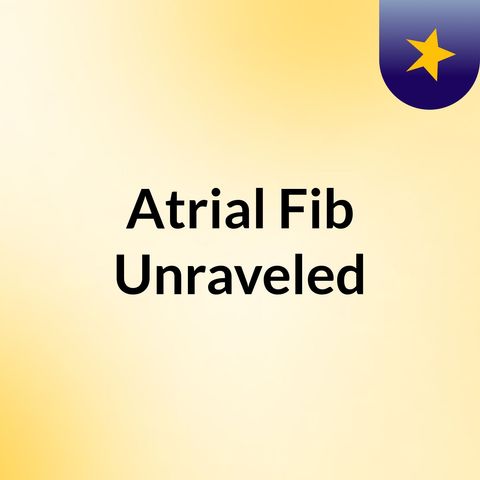
Contacts
Info
1. What is atrial fibrillation? Atrial fibrillation is a heart condition characterized by an irregular and often rapid heart rate that can increase the risk of stroke, heart failure, and...
show more- “Dietary omega-3 fatty acids and the risk of incident atrial fibrillation: the Atherosclerosis Risk in Communities (ARIC) Study.” Journal of Nutrition, vol. 146, no. 10, 2016, pp. 2213-2220.
- “Magnesium intake and risk of atrial fibrillation: a systematic review and meta-analysis.” Nutrition, Metabolism, and Cardiovascular Diseases, vol. 26, no. 4, 2016, pp. 344-353.
- “The effects of magnesium supplementation on atrial fibrillation: a systematic review and meta-analysis.” Journal of the American Heart Association, vol. 7, no. 10, 2018, pp. e009348.
Atrial fibrillation (AFib) is a common heart condition that affects millions of people worldwide. While there are various medical treatments for AFib, making lifestyle changes can also help manage the condition and improve overall health. Here are some nutritional and lifestyle ways to help manage AFib: Stress Reduction Stress can exacerbate AFib symptoms and worsen the condition. Practicing stress-reducing techniques can help manage AFib. Some stress-reducing techniques include:
- Meditation and mindfulness: Regular meditation and mindfulness practices can help reduce stress and anxiety, which can contribute to AFib symptoms.
- Yoga: Yoga combines physical movement with deep breathing and relaxation techniques, which can help reduce stress and improve overall well-being.
- Deep breathing exercises: Deep breathing exercises can help slow down your heart rate and reduce stress.
- Progressive muscle relaxation: This technique involves tensing and relaxing different muscle groups to reduce stress and promote relaxation.
- Visualization: Visualization techniques can help you focus on positive images and reduce stress.
- Stick to a sleep schedule: Go to bed and wake up at the same time every day, including weekends.
- Create a bedtime routine: Develop a calming pre-sleep routine, such as reading a book or taking a warm bath.
- Avoid caffeine and alcohol before bedtime: Both can disrupt sleep patterns and worsen AFib symptoms.
- Create a sleep-conducive environment: Keep your bedroom cool, dark, and quiet, and invest in a comfortable mattress and pillows.
- Limit exposure to screens before bedtime: The blue light emitted by screens can disrupt sleep patterns.

Get ready for what's next!
This podcast is gearing up to share something amazing. Follow now to get notified when the first episodes drop.
1. What is atrial fibrillation? Atrial fibrillation is a heart condition characterized by an irregular and often rapid heart rate that can increase the risk of stroke, heart failure, and...
show more- “Dietary omega-3 fatty acids and the risk of incident atrial fibrillation: the Atherosclerosis Risk in Communities (ARIC) Study.” Journal of Nutrition, vol. 146, no. 10, 2016, pp. 2213-2220.
- “Magnesium intake and risk of atrial fibrillation: a systematic review and meta-analysis.” Nutrition, Metabolism, and Cardiovascular Diseases, vol. 26, no. 4, 2016, pp. 344-353.
- “The effects of magnesium supplementation on atrial fibrillation: a systematic review and meta-analysis.” Journal of the American Heart Association, vol. 7, no. 10, 2018, pp. e009348.
Atrial fibrillation (AFib) is a common heart condition that affects millions of people worldwide. While there are various medical treatments for AFib, making lifestyle changes can also help manage the condition and improve overall health. Here are some nutritional and lifestyle ways to help manage AFib: Stress Reduction Stress can exacerbate AFib symptoms and worsen the condition. Practicing stress-reducing techniques can help manage AFib. Some stress-reducing techniques include:
- Meditation and mindfulness: Regular meditation and mindfulness practices can help reduce stress and anxiety, which can contribute to AFib symptoms.
- Yoga: Yoga combines physical movement with deep breathing and relaxation techniques, which can help reduce stress and improve overall well-being.
- Deep breathing exercises: Deep breathing exercises can help slow down your heart rate and reduce stress.
- Progressive muscle relaxation: This technique involves tensing and relaxing different muscle groups to reduce stress and promote relaxation.
- Visualization: Visualization techniques can help you focus on positive images and reduce stress.
- Stick to a sleep schedule: Go to bed and wake up at the same time every day, including weekends.
- Create a bedtime routine: Develop a calming pre-sleep routine, such as reading a book or taking a warm bath.
- Avoid caffeine and alcohol before bedtime: Both can disrupt sleep patterns and worsen AFib symptoms.
- Create a sleep-conducive environment: Keep your bedroom cool, dark, and quiet, and invest in a comfortable mattress and pillows.
- Limit exposure to screens before bedtime: The blue light emitted by screens can disrupt sleep patterns.
Information
| Author | Dr. Michael Wald,DC,Board Cert |
| Organization | Dr. Michael Wald |
| Categories | Health & Fitness |
| Website | - |
| info@blooddetective.com |
Copyright 2024 - Spreaker Inc. an iHeartMedia Company
